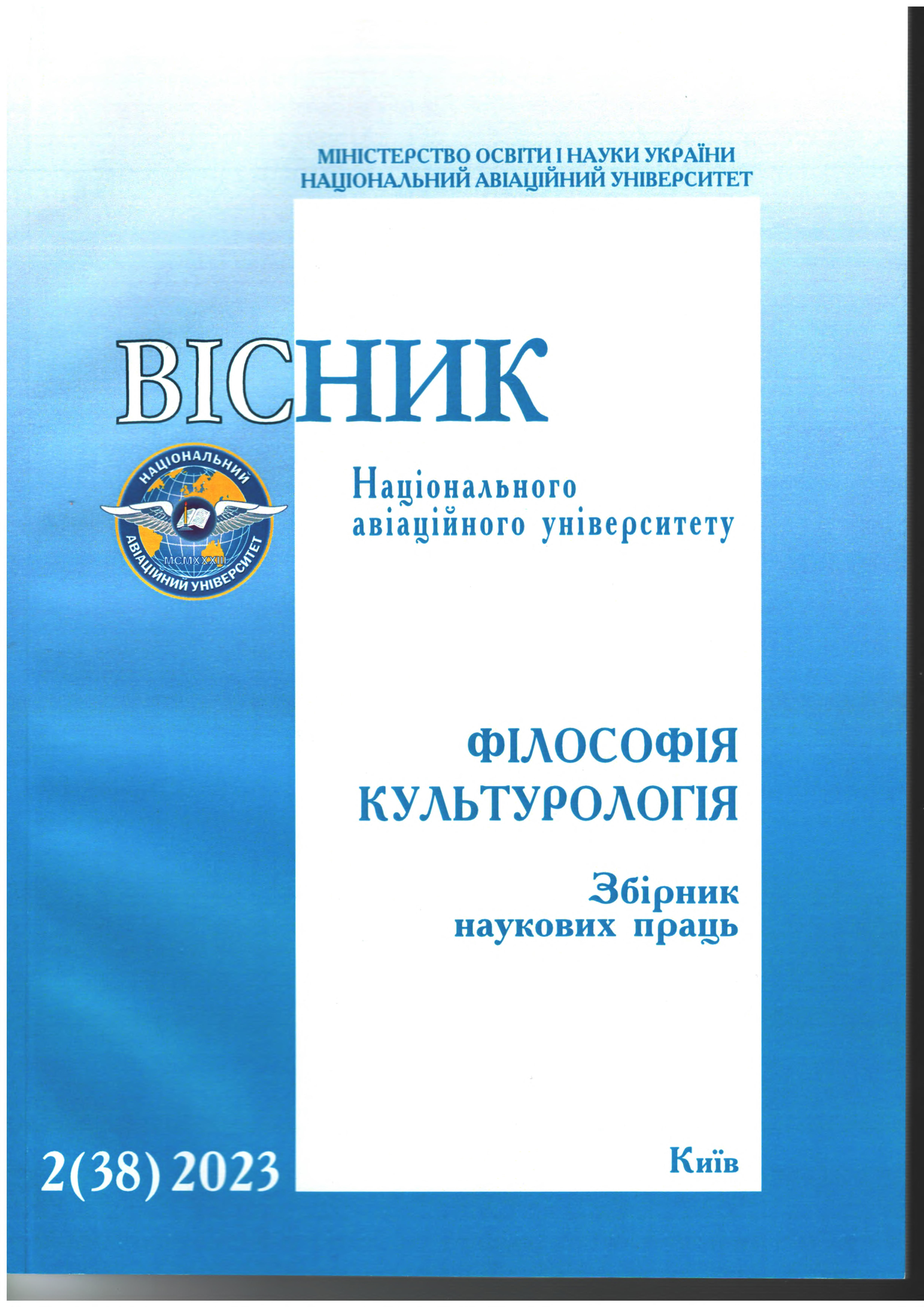HISTORICAL AND PHILOSOPHICAL ARGUMENTATION IN MODERN PHILOSOPHICAL DISCOURSЕ
DOI:
https://doi.org/10.18372/2412-2157.2.18111Keywords:
history of philosophy, modern philosophical process, argumentation, dialogue, discourseAbstract
Introduction. The article examines the historical and philosophical process and modern philosophical discourse in the context of the
problem of argumentation. The aim of the research is to show the features of modern philosophical discourse, identifying the connection with the experience of human thinking and existence. Research methodology. is hermeneutic phenomenology according to which the process of understanding is focused on both self-awareness and being. Research results. The argument as the basis for proving ideas, principles, conceptual positions, teachings, etc. in philosophy has its specifics. The peculiarity of historical and philosophical argumentation is that scientific discourse uses as "arguments" the categorical "language" of the culture of a certain era, a person’s worldview, the mentality and style of his thinking. This means that the process of philosophical argumentation goes beyond the boundaries of traditionally scientific, rational methods of proof and relies in particular on artistic, mythopoetic, religious images, aesthetic experiences, topological reflection, etc. Discussion. The problem of argumentation is considered in a polemical discourse with Y. Ishchenko and V. Navrockij. Both researchers interpret "discourse" as a "communicative phenomenon". The ideas of constructing a logical and cognitive model of discourse, focused on the "inner worlds" of communicants, the connection of discourse not only with language but also with thinking, the subject of thinking, the idea of the "unity" of discourse and life were of particular scientific interest. Conclusions. In the history of knowledge, argumentation was a "form" of proof in the logical and gnoseological sense, i.e. it was a system of judgments, inferences, and a way of organizing knowledge. The modern interpretation of argumentation considers it as a "communicative act" in which important meaning is a person’s mentality, person's beliefs, biography, traditional forms of acquiring knowledge, etc. Philosophical argumentation goes beyond the boundaries of logical form relying on a symbolic understanding of culture.
References
Deleuze G., Guattari F. Qu’est-ce que la philosophie? Paris: Les Éditions de Minuit, 1991. 206 p.
Heidegger M. Platons Lehre von der Wahrheit. Mit einem Brief über den Humanismus. Bern, 1947. S. 53-119.
Вальденфельс Б. Вступ до феноменології; пер. з нім. К.: «Альтерпрес». 2002. 176 с.
Іщенко Ю. А. Аргументація в науковому дискурсі. Філософські основи наукових досліджень. К.: Інтерсервіс. 2019. С. 186-195.
Конверський А. Є. Логіка традиційна та сучасна: підручник. К.: Видавничо-поліграфічний центр «Київський університет». 2007. 440 с.
Навроцький В. В. Логічні теорії діалогу і дискурсу: когнітивний підхід. Філософська думка. Український науково-теоретичний часопис. 2001. № 3. С. 17-28.
Рікер П. Історія та істина: пер. з фр. В.І. Шовкун. К.: КМ Academia: Пульсари. 2001. 396 с.
Рікер П. Сам як інший: пер. з фр. К.: Дух і Літера, 2000. 458 с.
Суходуб Т. Д. Листування як філософський жанр: аналіз у контексті життєтворчості Г. С. Сковороди. Вісник Національного авіаційного університету. Серія: Філософія. Культурологія. 2022. № 2 (36). С. 67–74. DOI: https://doi.org/10.18372/2412-2157.36.16974

